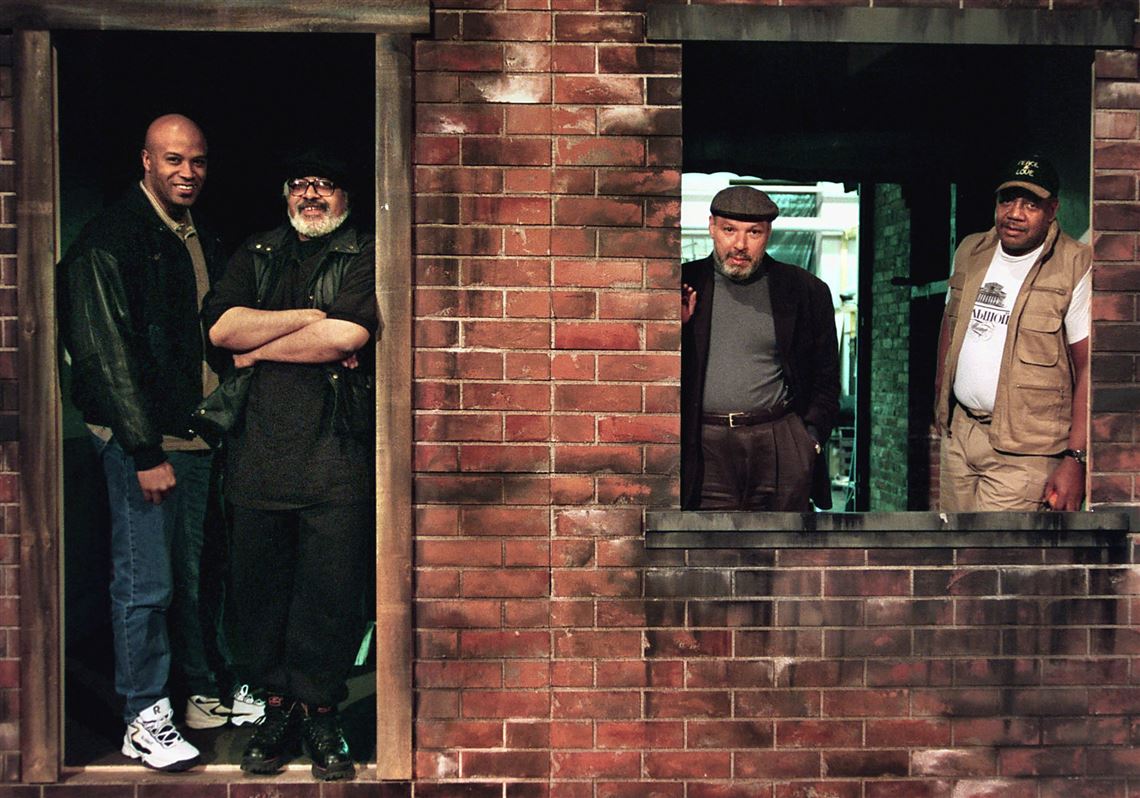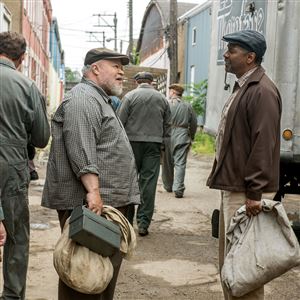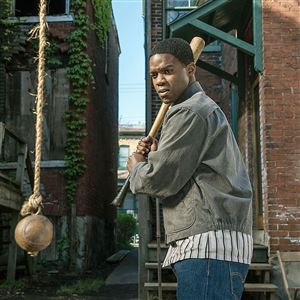When August Wilson’s “Fences” appeared on Broadway in 1987, it swept all before it, winning Tony Awards for best play, best actor James Earl Jones, best supporting actress Mary Alice and best director Lloyd Richards — the canny elder who nurtured Mr. Wilson’s raw talent from their first meeting at the O’Neill Theater Center in 1982.
“Fences” also won the first of Mr. Wilson’s two Pulitzer Prizes. But more important, of the nine August Wilson plays staged on Broadway, it was by far the most successful financially. Today it remains one of (perhaps the single) most widely staged and read American plays of the past half-century. It is certainly the most popular play in Mr. Wilson’s ambitious American Century Cycle of 10 plays, each set in a different decade of the 20th century, all written in just 25 years before Mr. Wilson’s death at 60 in 2005.
Talk of a film version of “Fences” began early, partly to immortalize the performances by Mr. Jones and Ms. Alice. Mr. Wilson was excited at the prospect and wrote the first of at least two screen treatments, “opening the play out” to include other characters and locales. He used to say he imagined Oprah Winfrey as Alberta, who bears Troy’s child but doesn’t actually appear in the stage play.
But from the start he felt strongly that only a black director would know the culture and understand the complex history, spirit and milieu of midcentury black America. Hollywood first offered him the Oscar-winning Barry Levinson and said qualified black directors weren’t available.
Different studios or individuals owned the rights at different times, including Eddie Murphy, but no one could make a deal. In 1998, Mr. Wilson told the Post-Gazette there was progress: “We’re supposed to do ‘Fences,’ with Laurence Fishburne directing. … Paramount would like to do it this year, so I’m going to spend the summer rewriting my screenplay.”
Nothing came of that, nor of a later initiative featuring another black director, John Singleton. Mr. Wilson resigned himself, as he said, to “renting out” the rights to one producer after another and pocketing the money.
Meanwhile, Mr. Wilson’s other Pulitzer winner, “The Piano Lesson,” did make it to the screen, but in a Hallmark Hall of Fame version pruned down for TV. With a filmscript by Mr. Wilson and directed by Mr. Richards, it was taped in Pittsburgh using most of the Broadway cast and broadcast in 1995.
Mr. Wilson died in 2005 without seeing “Fences” on the screen. But a few years later, Scott Rudin, a powerful force in Hollywood and on Broadway, secured the rights and approached Denzel Washington, a black star of such magnitude that deals are made at his say-so.
Mr. Washington did the unheard-of, saying he wouldn’t do the movie until he played Troy on stage. There were those who suggested that he was auditioning for the movie, but of course it was really the producer and play that were auditioning to get on Mr. Washington’s future schedule.
That 2010 Broadway revival repeated its Tony triumph, winning best play (revival) and best actor and actress for Mr. Washington and Viola Davis. That revival is intimately connected to this film, which has the same cast, except for the two youngest characters, Raynell and Cory, who are ages 7 and 17.
Why did “Fences” have to wait so long? Partly, no doubt, because it’s an unglamorous story about a black community and a garbage man. Hollywood couldn’t see past that to the rich American epic it represents and the language it uses — Hollywood doesn’t really care about language. Also, it demanded a star, and Mr. Jones became too old.
Along the way, “Fences” has been staged four times in Pittsburgh, twice each by the Pittsburgh Public Theater (1989 and 1999, both starring John Henry Redwood) and Pittsburgh Playwrights Theatre (2004 and 2015, starring Jonas Chaney and Kevin Brown). They are two of the 11 theaters nationally that have so far staged all 10 plays of the Century Cycle — sometimes known as the Pittsburgh Cycle, because nine of the 10 are set in the Hill.
Oddly, for all its success, “Fences” was never one of Mr. Wilson’s favorites — most often he would cite “Joe Turner’s Come and Gone” and whatever other play he was working on. Partly, “Fences” was an “I’ll show you,” a response to the complaints that his plays lacked a central story, focusing on the tribe rather than a heroic individual: “Ma Rainey” the band, “Joe Turner” the boarding house, “Jitney” the jitney drivers. Mr. Wilson considered this ensemble focus to be “African,” fitting his conviction that African-Americans differed in many ways from whites.
But he reacted to the critical complaints with “Fences” and its more familiar “great man” dramaturgy, where everyone is defined by their relationship to Troy: brother, wife, friend and three children. He moved it up to second place in the Broadway assembly line. Then he went back to writing the ensemble plays, returning to the central tragic figure only once more, in “King Hedley II.”
After all the frustration expended on possible movies of “Fences,” Mr. Wilson would surely be pleased with the result in several ways. The film script is just about entirely his own words. Rather than use his expanded treatments, Mr. Washington (as director) and Tony Kushner (helping with the script although his credit is co-producer) went back to the stage play, pruning it and moving scenes to different locations, but using hardly a word that isn’t in the original play.
In addition, it features Mr. Washington, a fine actor on stage and screen with glamour to spare, along with another screen star, Ms. Davis, whose three Broadway appearances have all been in Mr. Wilson’s plays.
And it was filmed in Pittsburgh, Mr. Wilson’s native city. “Like most people, I have this sort of love-hate relationship with Pittsburgh,” he said in 1994, after he’d moved first to St. Paul, Minn., and then Seattle. “This is my home, and at times I miss it and find it tremendously exciting.”
“Fences” is shot through with Pittsburgh, not just in its places but also its people: Rose and Lyon, for example, are street names in the Hill, and Troy is on the North Side. But there is also a grander frame of reference: Troy suggests an ancient epic.
Now Mr. Washington has brought “Fences” home.
Senior theater critic Christopher Rawson: 412-216-1944.
First Published: December 24, 2016, 5:00 a.m.




















